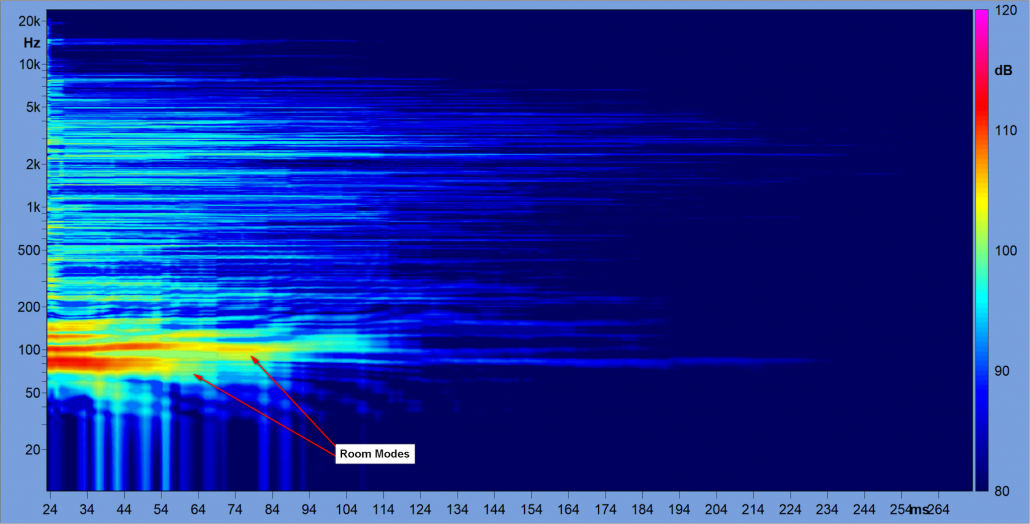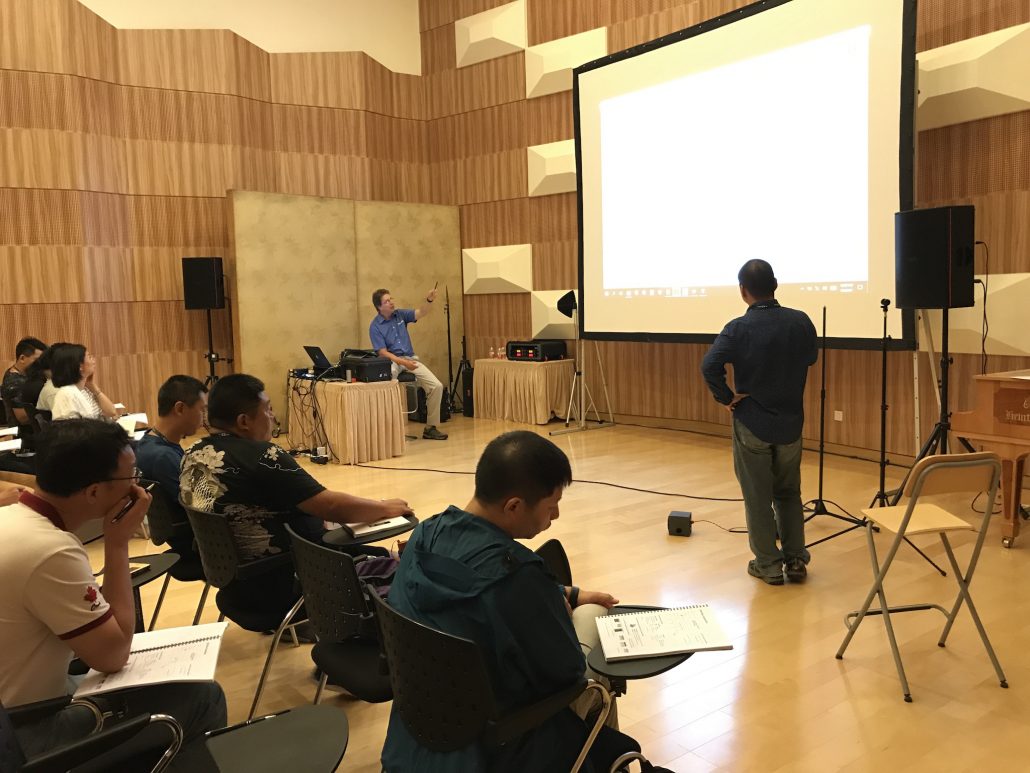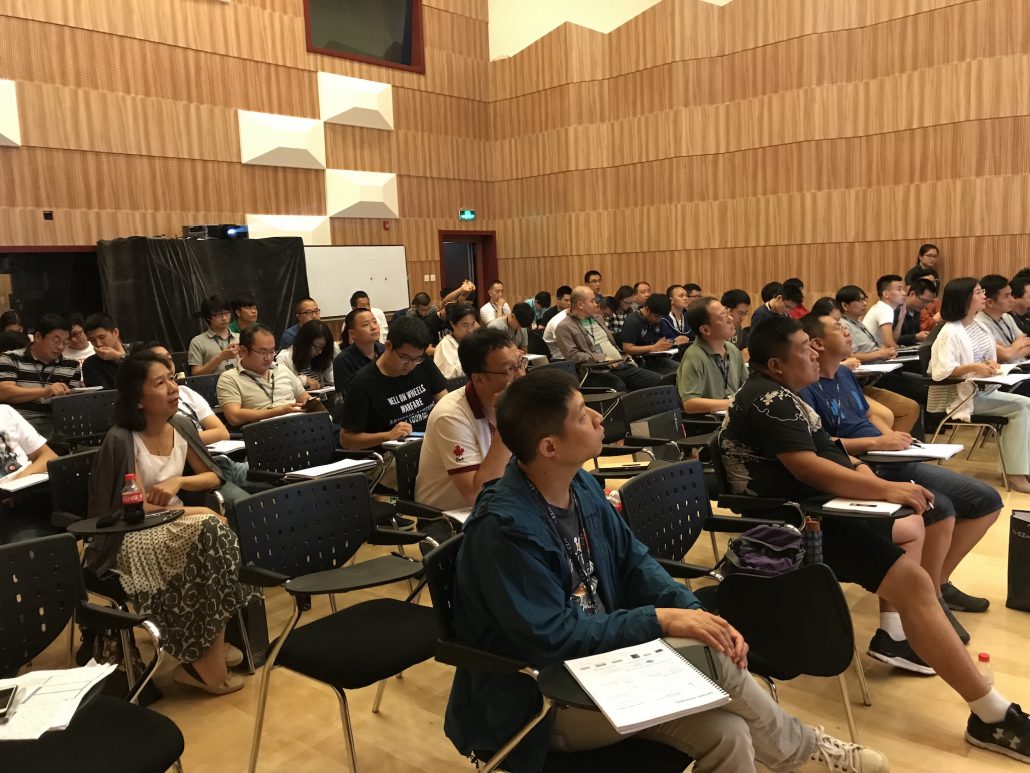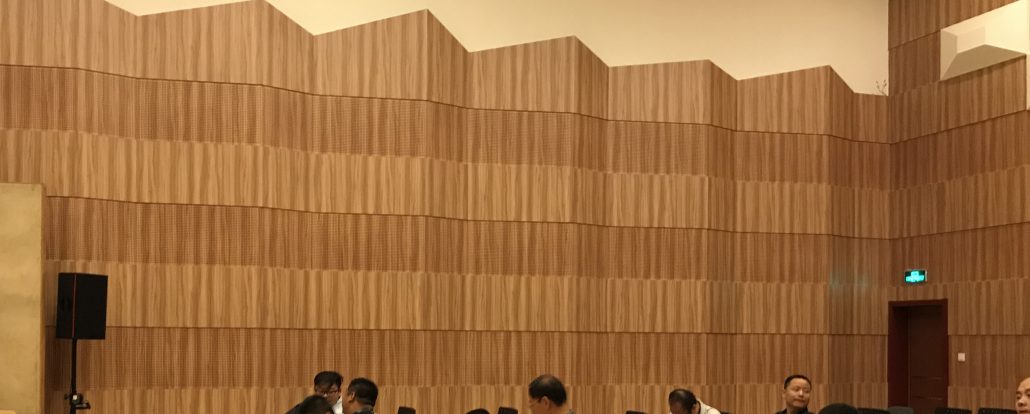Room Survey 30 – China University of Communication
Location: Beijing, China
Investigator: Pat Brown
Description: Large recording studio (52,000 ft³) at university. Walls are combination of absorption and scattering. The room was partially occupied (about 60 people). With a T30 of about 0.6 sec, this room is not statistically reverberant, but it is live and diffuse. There are some room modes below 200 Hz.
All in all, this is an extraordinary sounding space. The self-powered EAW loudspeakers (see pict below) used for the portable house PA sounded good, and no further EQ was used, other than a high pass filter on both vocal mics.
File Type: Mono
Loudspeaker: 3-way Medium Q Full-Range
Microphone: Bedrock BAMT2 on Lectrosonics wireless
Recorder: RME Babyface using FIR-Capture software.
Source: 0.8 sec/octave log sweep.
IR Extraction: Direct
Room Data: Room Impulse Responses (The impulse responses are for personal or educational use only.)
Test Positions:
TP1 – 10 ft.
TP2 – 20 ft.
TP3 – 30 ft.
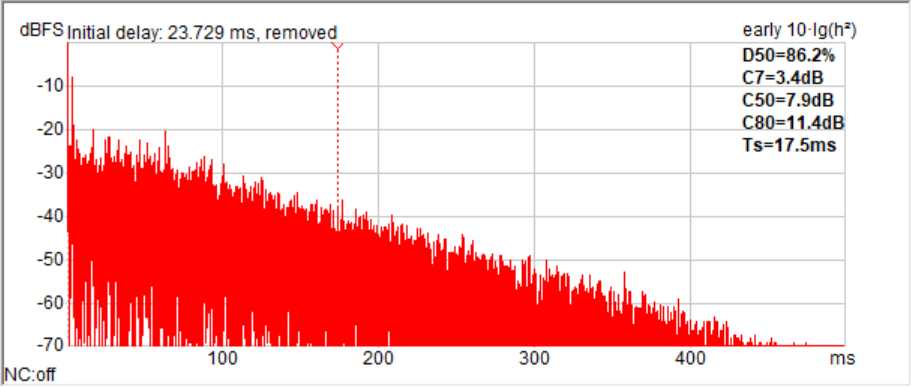 Plot 1 – Log-squared RIR of TP2. Note the absence of flutter echos in this shoebox room. Click below to hear speech track.
Plot 1 – Log-squared RIR of TP2. Note the absence of flutter echos in this shoebox room. Click below to hear speech track.
Plot 2 – A 2D waterfall plot of TP2 makes the room modes obvious (FIR-Capture). The vertical axis is log frequency. The horizontal axis is time (ms). The plot shows which frequencies resonate over time.
Photos – The walls were hardwood. Every other horizontal row was perforated. Select photo and zoom in to see wall detail.

